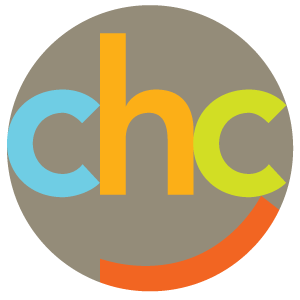Children’s Health Council and Lucile Packard Children’s Hospital Celebrate 30 Years of Partnership

Providing an APA-Approved Doctoral Internship Program in Clinical and Pediatric Psychology
In 1990, the American Psychological Association (APA) accredited a consortium internship program between Children’s Health Council (CHC) and Lucile Packard Children’s Hospital at Stanford (LPCH). Thirty years later, the prestigious program receives well over 100 applications annually for just four spots, attracting the top doctoral students from around the country.
The program’s primary goal is to provide broad-based experiential training in child and pediatric psychology in both inpatient and outpatient settings, contributing to the development of highly skilled and ethical child psychologists. But applicants are far from fledglings: candidates must first have earned a Bachelor’s degree, been accepted into a competitive Clinical Psychology program, taken approximately four years of classes, had at least three years of practicum clinical experience, and completed an internship application frequently consisting of upwards of 50 pages. An internship and dissertation are typically a candidate’s last steps before earning their PhD.
The four doctoral interns who are accepted into the program must complete three full-time rotations: 6 months at CHC and two 3-month rotations at LPCH. At CHC, interns provide assessment and therapy services to the MediCal-funded families in our Community Clinic and participate in RISE, a comprehensive DBT intensive outpatient program (IOP) for high-risk teens founded in 2017 by a collaboration of experts from both CHC and Stanford. At LPCH, interns gain experience conducting psychological consultations on a wide variety of medical services as well as working with inpatients in Stanford’s eating disorders unit.
“I was mainly attracted to the program based on the breadth of training,” says former intern Gini Peisch, now a postdoctoral fellow at Boston Children’s Hospital, Developmental Medicine Center. “It was really appealing to complete various rotations in different settings (e.g., outpatient clinic, hospital setting, IOP) and to work within multidisciplinary assessment and treatment teams. I feel like I’ve emerged with really solid clinical skills that I can use in several different domains.” Adds Anna Ros, a former intern who is returning to CHC as a postdoc fellow, “this internship program offers training opportunities that allow for growth into a more well-rounded clinician.”
Training objectives throughout the 12-month internship include increased competencies in assessment, treatment, consultation, diversity, and professional ethics. Interns gain competence in working with a broad range of presenting problems and making differential diagnoses in complex cases. Interns refine skills in providing a variety of interventions including individual, family and group therapy. Consultation includes both medical/pediatric consultations as well as consultations with school personnel around a child’s medical, learning and/or emotional conditions. Interns have the opportunity to work with multiple supervisors who reflect varying theoretical orientations including developmental, cognitive-behavioral, DBT, psychodynamic and family systems approaches. In this way, interns observe and learn from a range of clinical mentors so that they can develop their unique professional style.
“Through the various rotations I was continuously challenged to grow as a clinician. It is impressive to reflect on the incredibly diverse experiences I had in just one year of training and know it influences my clinical work today, many years later,” says Lauren Mikula Schneider, Psy.D., now a Clinical Associate Professor in the Department of Psychiatry and Behavioral Sciences at the Stanford University School of Medicine.
While CHC and LPCH provide expert multidisciplinary, top-notch training grounds, doctoral interns bring insatiable energy, ideas and eagerness to learn. Interns and staff members alike share cutting-edge research, approaches and best practices. Many doctoral interns progress to postdoctoral and staff or faculty positions at Stanford or CHC, continuing the legacy of the training program and producing the next generation of outstanding child and adolescent psychologists: a 30-year partnership that truly calls for celebration.



